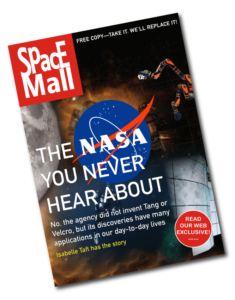Has the pace at which we revisit events of 50 years ago quickened lately? If so, is that because those events were so significant or because the present has become so unnerving to look upon? Yes, 1968 brought momentous assassinations and democracy-in-the-streets happenings at Columbia and the Democratic convention in Chicago, and 1969 saw the moon landing and Woodstock. Of these, the one that makes the pulse quicken is Neil Armstrong’s first step on the moon’s surface and his poetic commemoration of it. A giant leap for mankind, but what was the nature of that leap? For Armstrong the engineer-astronaut, it must have been technological—imagination fulfilled by ingenuity. But even a roomful of Leonardos or Elon Musks could not have accomplished it. Too much needed to be done too fast. It was a leap that only a government could have made happen, a rich nation well led at many levels with a sense of purpose that had carried through much of a decade.
That leap seemed to predict other such leaps, making it more of a hop, perhaps, before the big skip to Mars or the unimaginable jump to the stars. But in the half century since, the moonwalk has grown to seem less like a beginning and more like an end. In a website exclusive accompanying our cover story, journalist Isabelle Taft points out that at the moment of Armstrong’s first step, only 53 percent of Americans supported the effort. By the second step, at least figuratively, fewer than half did, but that number grew as the event receded into the past.
In his cover story, science writer George Musser makes the argument that the leapless half century since Apollo 11 might be attributed not only to a failure of national will or of leaders able to inspire Americans to dream big once again, but also to a tendency to move too quickly rather than build on what has been accomplished—a problem he sees continuing with the space ambitions of Musk and his ilk.
Three good men I associate with my years here died this spring. One, the much-respected book and magazine editor Richard Todd, did not appear in the Scholar but favored us by sending writers our way. The second, Jacob A. Stein, dean of Washington attorneys, was an amiable haunter of our offices, where we gladly proffered him free books on obscure subjects. Read about Jake’s love of books in a fine tribute on our website by his friend and our senior editor, Bruce Falconer. The third was the distinguished historian John Lukacs, who graced our pages with several searching essays looking back on his long career and summing up. In these pieces he was thinking not in increments of half a century but half a millennium, and not just of historical events but of the meaning of human history itself.



